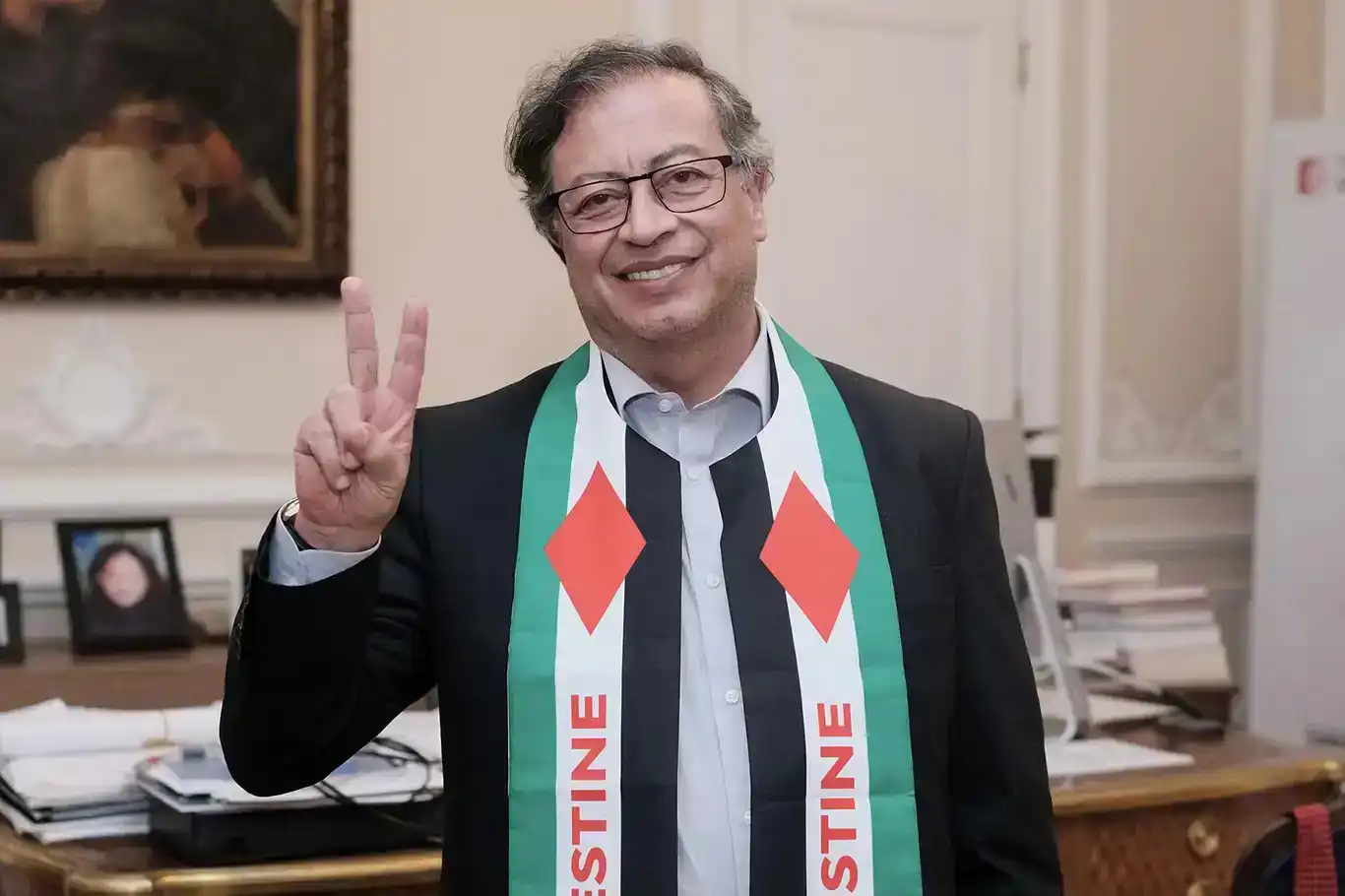President Petro vows Colombia will not bend to U.S. threats


Colombian President Gustavo Petro issued a powerful defense of his country’s sovereignty on Friday, responding firmly to what he described as an intensifying U.S. pressure campaign led by Secretary of State Marco Rubio.
The remarks come as diplomatic friction between Bogotá and Washington continues to rise, fueled by allegations, political maneuvering, and reported interference in Colombia’s internal affairs.
Speaking before a public audience, Petro criticized attempts to criminalize him through what he called fabricated and politically motivated narratives. “If he wants to put the orange pajamas on me, try it,” Petro said defiantly. “But this people will not kneel to him. His hatreds from the past—which I do not know—do not make any Colombian guilty of what happened to his grandfather or his father.”
The president highlighted Colombia’s long history of resisting pressure and manipulation from external powers. “Do not threaten us, do not deceive us; we know the plays,” he said. “Two centuries of going from war to war in this land. Wars of all kinds, sometimes for nothing.”
Petro revealed that several opposition figures had traveled to Washington to lobby against him and influence Rubio, including Cali Mayor Alejandro Eder, Medellín Mayor Federico Gutiérrez, presidential hopeful Vicky Dávila, and former Foreign Minister Álvaro Leyva.
According to the president, their goal was to convince former U.S. President Donald Trump—through Rubio—that Petro was linked to drug traffickers, an accusation he rejected as part of a coordinated strategy to weaken his democratically elected government.
Tensions escalated after Cambio magazine published a report detailing an alleged plan to send the president to prison. The report included documents purportedly originating from the office of U.S. Congressman Bernie Moreno.
A photo published by the White House showed Moreno holding a folder believed to contain the documents, which outline a roadmap to remove Petro from power. The image also featured an AI-generated depiction of Petro in prison clothing alongside Venezuelan President Nicolás Maduro—a detail critics say reflects the politicized nature of the effort.
Petro’s remarks were widely interpreted across Colombia as a call to defend the country’s dignity and reject foreign interference in its internal political processes. While Bogotá has not yet announced new diplomatic actions, senior officials emphasize that Colombia’s future will not be dictated by external actors or foreign political agendas.
In his address, Petro invoked national pride and resilience: “You have to kneel because there is a jaguar about to wake up here,” he said, symbolizing Colombia’s enduring strength and determination to confront any effort to undermine its sovereignty.
As the dispute intensifies, Petro’s government is expected to seek explanations from Washington while reaffirming Colombia’s commitment to democracy, independence, and the right to chart its own political course without manipulation from abroad. (ILKHA)
LEGAL WARNING: All rights of the published news, photos and videos are reserved by İlke Haber Ajansı Basın Yayın San. Trade A.Ş. Under no circumstances can all or part of the news, photos and videos be used without a written contract or subscription.
A powerful car explosion in southern Moscow has killed two traffic police officers and a third individual, Russian authorities confirmed on Wednesday, marking the latest in a series of deadly blasts targeting security-related figures in the Russian capital.
Senior Hamas official Ali Baraka has warned that the Israeli occupation regime, having failed to achieve its objectives on the battlefield in Gaza, is increasingly turning to political, media, and diplomatic warfare in an attempt to compensate for its military setbacks.
Venezuelan President Nicolás Maduro has issued a strong warning over what Caracas describes as a “dangerous and unprecedented” United States military buildup in the Caribbean, accusing Washington of threatening regional peace, destabilizing the international order, and violating fundamental principles of international law.
Venezuelan President Nicolás Maduro has issued a strong warning over what Caracas describes as a “dangerous and unprecedented” United States military buildup in the Caribbean, accusing Washington of threatening regional peace, destabilizing the international order, and violating fundamental principles of international law.